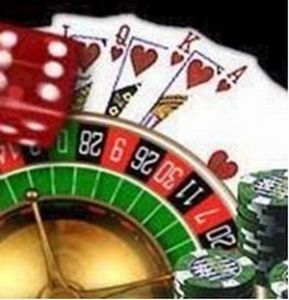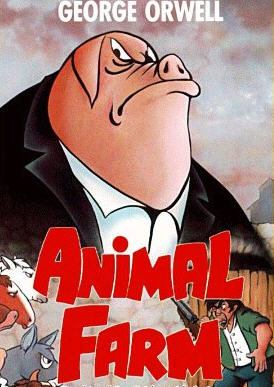
"We seem to always know where we are in a Billy Collins poem, but not necessarily where he is going. I love to arrive with him at his arrivals. He doesn't hide things from us, as I think lesser poets do. He allows us to overhear, clearly, what he himself has discovered." This was what a poet, Stephen Dunn once said about Billy Collins who is also a famous poet.
Being attracted to poetry, I knew several famous poets and some of their masterpieces. I had been enjoying peotry a lot and also impressed by how the poets express their feelings and mood in their poems so well. To me, peotry is the act of expressing one's thoughts in a short story or verses indirectly. Peotry really arouses my emotions as poets use figurative language and imagery to express their feelings or create an idea of the poem. Speaking of this, Billy Collins will be the one who is really capable of doing all the thing that I had mentioned earlier. He was one of my favourite poet(since I had to choose one) and this is proved by his masterpieces of poems.
Why is he my favourite poet?
Firstly, I am very impressed by his style of writing a poem which I had enjoyed a lot. All his poems have great fluency and are successfully able to bring out the mood and idea of the poems using imagery and some figurative language which include personification and metaphor. In addition, Collins can also express the idea, his feelings or a mental image of his poem well. In his poetry, Billy Collins wrote better than others mostly due to the unique style of writing he uses to create his poems. I especially like his way of using simplistic stanzas to try to create images or idea of the poems, pulling the reader away from real life and draw them into his "poetic world". I am also impressed by the number of awards he had recieved. In addition, Billy Collins also cherished American poetry and put a lot of effort into creating poems. Other than these, his poems also rarely follow a significant topic. Instead, they are just some thoughts and ideas that happen to come from his head. Since he loves poetry a lot, he also uses poetry sometimes to offer relief when he or the reader was troubled. Hence, I am also impressed by his great passion of creating poems.
In addition, Billy Collins is my favourite poet as he is already a talent when he was in grade school as at that time, he was able to express his feelings and thoughts on paper very well. Different from other poets who will be frustrated if they do not have any ideas to create poems, Billy Collins does not force himself to write if he does not have any inspration in order to produce great works. He usually does not force meter or rhyme into his poems to capture the readers' attention but he used clever and witty description and comedy which I enjoy very much. Billy Collins is really a writer with warmth and surreal humor which can be seen in his intersting and enjoyable poems.
Historical & Biographical background
Being a former U.S. Poet Laureate, Billy Collins was actually the author of several poetry books. He was born in New York City in 1941. Collins then completed fellowships at the New York Foundation for the Arts, National Endowment for the Arts, and The Guggenheim Foundation. He was already a talent in poetry when he was in grade school. He was then educated at College of the Holy Cross where he received a bachelor’s degree in 1963 and at the University of California, he received his doctorate in English. He was a current teacher at Lehman College now.
Billy Collins has been very successful in creating six published poetry books and they are featured around his country. His poetry is in many periodicals and he also does a lot of public reading in which he draws a large crowd. In addition, his poetry has actually appeared in anthologies, textbooks and even a variety of periodicals which includes Poetry, American Poetry Review, American Scholar, Harper's, Paris Review, and The New Yorker. His work has been featured in the Pushcart Prize anthology and has been chosen several times for the annual Best American Poetry series. Billy Collins has also edited Poetry 180: A Turning Back to Poetry (Random House, 2003) which is an anthology of contemporary poems for use in schools and was a guest editor for the 2006 edition of The Best American Poetry. In addition, Billy Collins has also earned many awards for his incredible explanations and description using words in his poems. He actually won Best American Poetry twice for two of his books, which were once in 1992 and the other one in 1993. He also won the Bess Hokin award in 1992 and most recently, he was then named US Poet Laureate in 2001. This award is one of the greatest and prestigious ever recieved by a poet. He was then joined by former poets laureate Robert Hass, Rita Dove, and Robert Pinsky at the 2002 Dodge Poetry Festival. After that, Billy Collins still continues to strive as an achieved poet as people continue to find his simplistic poetry great. When he became an author, he eventually wrote several famous books on poetry which include:
- Ballistics (2008)
- She Was Just Seventeen (2006)
- The Trouble with Poetry (2005)
- Nine Horses (2002)
- Sailing Alone Around the Room: New and Selected Poems (2001)
- Picnic, Lightning (1998)
- The Art of Drowning (1995), which was a finalist for the Lenore Marshall Poetry Prize
- Questions About Angels (1991), which was selected by Edward Hirsch for the National
- Poetry Series
- The Apple That Astonished Paris (1988)
- Video Poems (1980)
- Pokerface (1977)
Later, he then served two terms as the Poet Laureate of the United States from 2001 to 2003. In New York, he has also been recognized as a Literary Lion of the New York Public Library (1992) and was selected as the New York State Poet for 2004. He was recently appointed Claire Berman Artist in Residence at The Roxbury Latin School, in West Roxbury, MA. He is a distinguished professor at Lehman College of the City University of New York.
How do people and poets feel about Billy Collins?
“The most important thing to say about Collins is that he is a deliberately minor poet, even a rebelliously minor poet, a poet who would reject major status if it were thrust upon him. Billy Collins has excelled his way through poetry fairly easy with his light verse style poems. ” This was quoted by Richard Alleva in his article of "A major minor poet".
His masterpieces
The Golden Years
by Billy Collins
All I do these drawn-out days
is sit in my kitchen at Pheasant Ridge
where there are no pheasants to be seen
and last time I looked, no ridge.
I could drive over to Quail Falls
and spend the day there playing bridge,
but the lack of a falls and the absence of quail
would only remind me of Pheasant Ridge.
I know a widow at Fox Run
and another with a condo at Smokey Ledge.
One of them smokes, and neither can run,
so I’ll stick to the pledge I made to Midge.
Who frightened the fox and bulldozed the ledge?
I ask in my kitchen at Pheasant Ridge.
Fishing on the Susquehanna in July by
Billy CollinsI have never been fishing on the Susquehanna
or on any river for that matter
to be perfectly honest.
Not in July or any month
have I had the pleasure--if it is a pleasure--
of fishing on the Susquehanna.
I am more likely to be found
in a quiet room like this one--
a painting of a woman on the wall,
a bowl of tangerines on the table--
trying to manufacture the sensation
of fishing on the Susquehanna.
There is little doubt
that others have been fishing
on the Susquehanna,
rowing upstream in a wooden boat,
sliding the oars under the water
then raising them to drip in the light.
But the nearest I have ever come to
fishing on the Susquehanna
was one afternoon in a museum in Philadelphia
when I balanced a little egg of time
in front of a painting
in which that river curled around a bend
under a blue cloud-ruffled sky,
dense trees along the banks,
and a fellow with a red bandanna
sitting in a small, green
flat-bottom boat
holding the thin whip of a pole.
That is something I am unlikely
ever to do, I remember
saying to myself and the person next to me.
Then I blinked and moved on
to other American scenes
of haystacks, water whitening over rocks,
even one of a brown hare
who seemed so wired with alertness
I imagined him springing right out of the frame.
Some Days by
Billy CollinsSome days I put the people in their places at the table,
bend their legs at the knees,
if they come with that feature,
and fix them into the tiny wooden chairs.
All afternoon they face one another,
the man in the brown suit,
the woman in the blue dress,
perfectly motionless, perfectly behaved.
But other days, I am the one
who is lifted up by the ribs,
then lowered into the dining room of a dollhouse
to sit with the others at the long table.
Very funny,
but how would you like it
if you never knew from one day to the next
if you were going to spend it
striding around like a vivid god,
your shoulders in the clouds,
or sitting down there amidst the wallpaper,
staring straight ahead with your little plastic face?
“But if something does flash before your eyes as you go under, it will probably be a fish, a quick blur of curved silver darting away, having nothing to do with your life or your death.” This states Billy Collins in one of his famous poem, “The Art of drowning”.
 Sign...... One more week left. Indeed, time really flies......
Sign...... One more week left. Indeed, time really flies......










 Once again, I am writing to introduce another well-written book to you after Robinson Crusoe, Animal Farm and Pollyanna. This book is entitled "One Singapore 3 More Singaporean Stories" and it is written by a famous local writer, Goh Sin Tub. Different from the three novels, this book is actually a non-fiction book with compilation of Singaporean Stories in the early times when Singapore gained independence. It is actually a sequel to two another books, One Singapore and One Singapore 2 which are all about interesting and touching Singapore stories. These authetic Singaporean stories are all actually told by real Singaporeans about the problems, encounters or stories that are so memorable that they cannot forget in their lifes.
Once again, I am writing to introduce another well-written book to you after Robinson Crusoe, Animal Farm and Pollyanna. This book is entitled "One Singapore 3 More Singaporean Stories" and it is written by a famous local writer, Goh Sin Tub. Different from the three novels, this book is actually a non-fiction book with compilation of Singaporean Stories in the early times when Singapore gained independence. It is actually a sequel to two another books, One Singapore and One Singapore 2 which are all about interesting and touching Singapore stories. These authetic Singaporean stories are all actually told by real Singaporeans about the problems, encounters or stories that are so memorable that they cannot forget in their lifes. While you may be amazed by the previous two novels, I had also read another famous novel entitled "
While you may be amazed by the previous two novels, I had also read another famous novel entitled ".jpg)




 Imagine yourself being stranded on an unhabited island alone. No food along with you, no money and no help. You are just the only human being on the island. How will you manage to survive and recover from desperation? Well, Robinson Crusoe could.
Imagine yourself being stranded on an unhabited island alone. No food along with you, no money and no help. You are just the only human being on the island. How will you manage to survive and recover from desperation? Well, Robinson Crusoe could.





